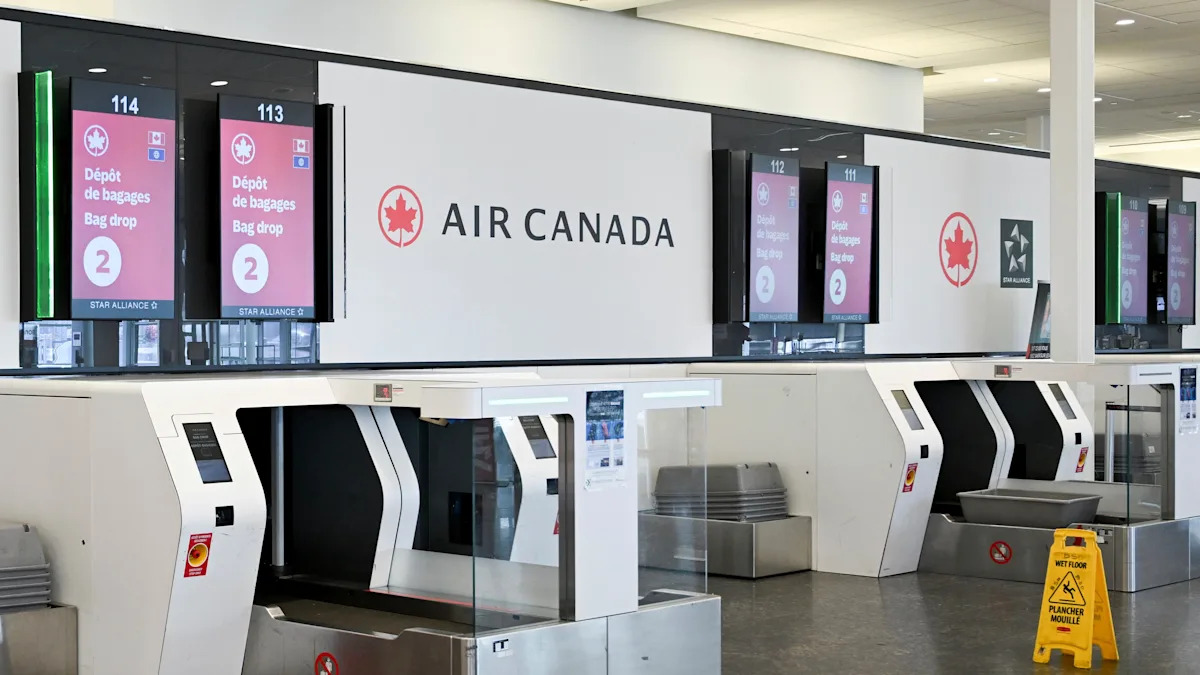Air Canada said it suspended plans to restart operations on Sunday after the union representing 10,000 flight attendants said it would defy a return-to-work order.
The Canada Industrial Relations Board ordered airline staff back to work by 2pm on Sunday after the government intervened and Air Canada said it planned to resume flights Sunday evening.
Canada’s largest airline now says it will resume flights Monday evening.
Air Canada said in a statement that the union “illegally directed its flight attendant members to defy a direction from the Canadian Industrial Relations Board”.
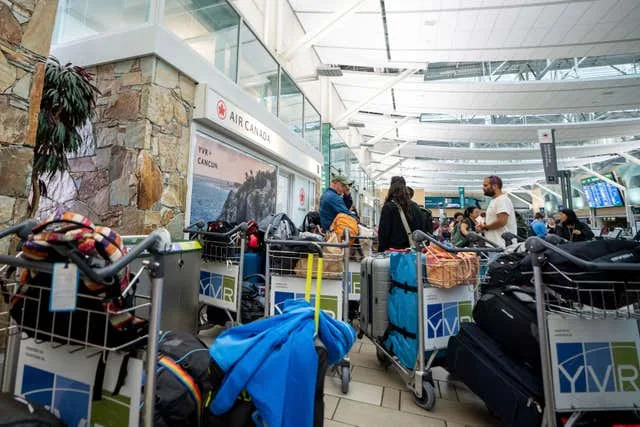
People wait outside an Air Canada check-in at Vancouver International Airport (Ethan Cairns/The Canadian Press via AP)
“Our members are not going back to work,” Canadian Union of Public Employees (CUPE) national president Mark Hancock said earlier on Sunday outside Toronto’s Pearson International Airport.
“We are saying no.”
The federal government did not immediately provide comment on the union refusing to return to work.
Mr Hancock said the “whole process has been unfair” and said the union would challenge what it called an unconstitutional order.
“Air Canada has really refused to bargain with us and they refused to bargain with us because they knew this government would come in on their white horse and try and save the day,” he said.
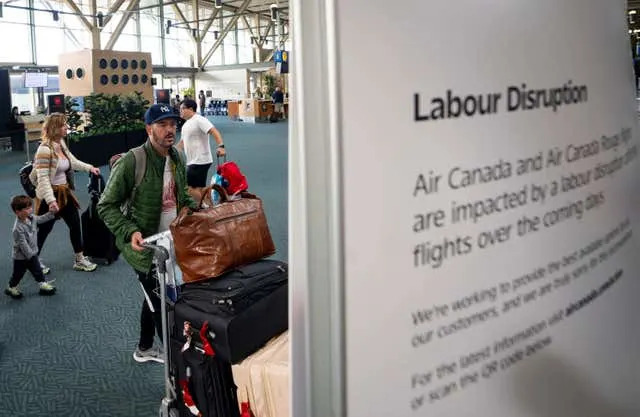
A man tries to check in to his Air Canada flight at Vancouver International Airport (Ethan Cairns/The Canadian Press via AP)
The federal government did not immediately provide comment on the union refusing to return to work.
The country’s largest airline had said early on Sunday in a release that the first flights would resume later in the day but that it would take several days before its operations returned to normal.
It said some flights would be cancelled over the next seven to 10 days until the schedule was stabilised.
Less than 12 hours after workers walked off the job, federal jobs minister Patty Hajdu ordered the 10,000 flight attendants back to work, saying now was not the time to take risks with the economy and noting the unprecedented tariffs the US had imposed on Canada.
Ms Hajdu referred the work stoppage to the Canada Industrial Relations Board.
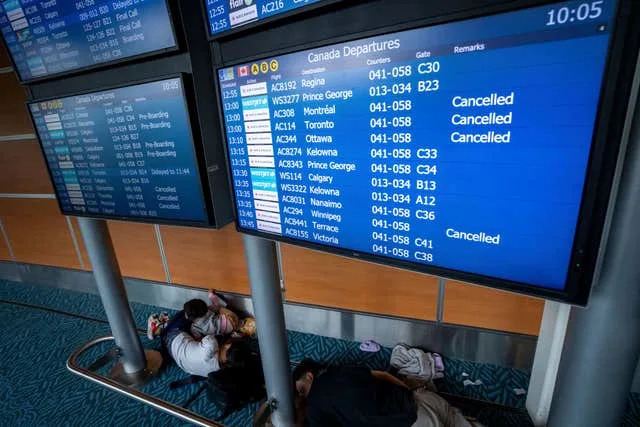
People sleep under a flight information board at Vancouver International Airport (Ethan Cairns/The Canadian Press via AP)
The airline said the Canada Industrial Relations Board had extended the term of the existing collective agreement until a new one was determined by the arbitrator.
The shutdown of Canada’s largest airline early on Saturday was impacting about 130,000 people a day.
Air Canada operates around 700 flights per day.
According to numbers from aviation analytics provider Cirium, Air Canada cancelled a total of 494 flights on Sunday morning. This was in addition to the hundreds of flights it cancelled in the previous days.
The bitter contract fight escalated on Friday as the union turned down Air Canada’s prior request to enter into government-directed arbitration, which allows a third-party mediator to decide the terms of a new contract.
Flight attendants walked off the job around 1am Eastern Daylight Time on Saturday.
Around the same time, Air Canada said it would begin locking flight attendants out of airports.
Ms Hajdu said that her Liberal government was not anti-union, saying it was clear the two sides were at an impasse.
Passengers whose flights were impacted would be eligible to request a full refund on the airline’s website or mobile app, according to Air Canada.
The airline said it would also offer alternative travel options through other Canadian and foreign airlines when possible.
Still, it warned that it could not guarantee immediate rebooking because flights on other airlines were already full “due to the summer travel peak”.
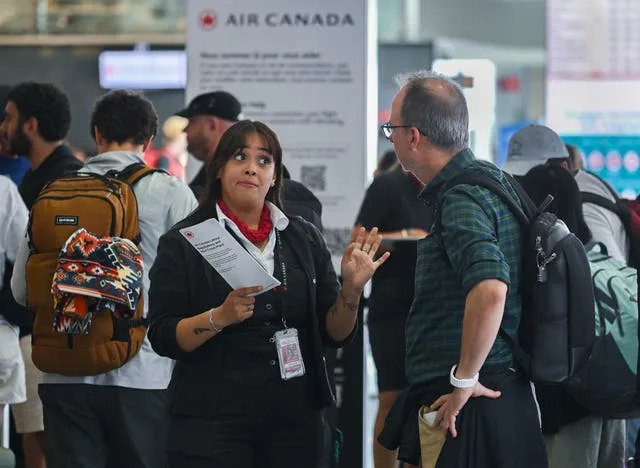
An Air Canada agent, left, speaks to a man at Montreal-Pierre Elliott Trudeau International Airport (Graham Hughes/The Canadian Press via AP)
Air Canada and CUPE have been in contract talks for about eight months, but they have yet to reach a tentative deal. Both sides have said they remain far apart on the issue of pay and the unpaid work flight attendants do when planes are not in the air.
The airline’s latest offer included a 38% increase in total compensation, including benefits and pensions, over four years, that it said “would have made our flight attendants the best compensated in Canada”.
But the union pushed back, saying the proposed 8% raise in the first year did not go far enough because of inflation.

